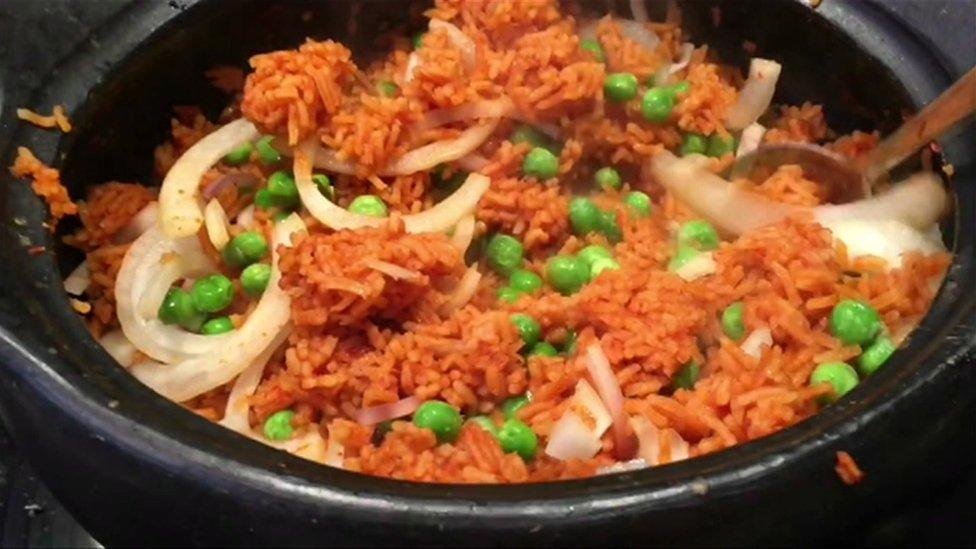Attieke - Ivory Coast's answer to champagne
- Published
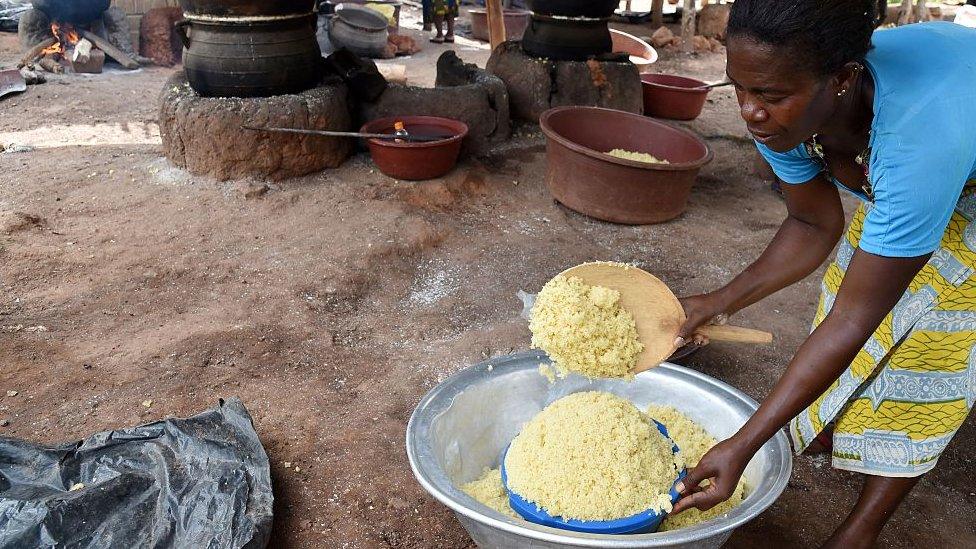
It may not be as prestigious as champagne, but Ivory Coast wants to get a protected status for attieke, the national food. The BBC's Enoh N'Dri asks whether it will work.

What is attieke?
Attieke (pronounced atchekay) is a traditional couscous made from ground cassava roots eaten by many Ivorians of all ages for breakfast, lunch and dinner.
It originated from the coastal areas of Ivory Coast centuries ago.
But it has travelled far beyond the country's borders to become one of the best known foods across French-speaking Africa and the diaspora in Europe and North America.

How do you cook it?
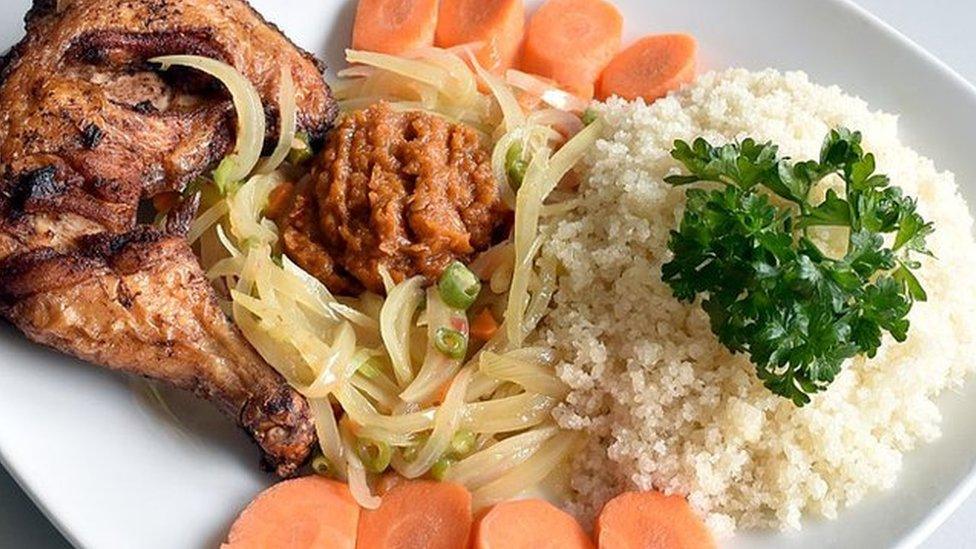
It is cooked in several different ways. The most popular is "attieke poisson grillee" - prepared with fried fish and sliced tomato, onion and green pepper.
There's also "attieke sauce tomate" - a tomato sauce cooked with fresh or dry fish.
A third is "attieke huile rouge". In this case the couscous is mixed with palm oil, which turns its almond colour to orange, accompanied with a hot pepper soup.
It can also be eaten with grilled chicken or smoked fish.

How do you prepare it?
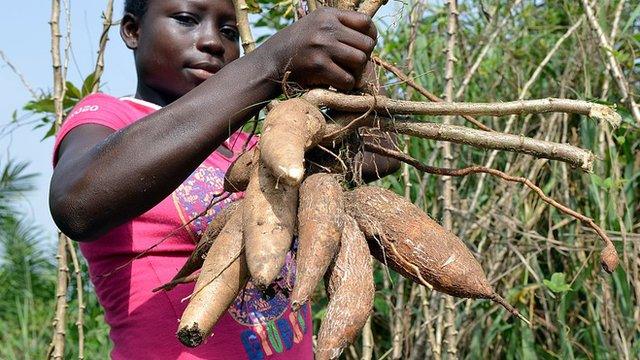
Attieke is made from fermented cassava roots
Attieke is traditionally made by women in villages across the country and in the outskirts of Ivorian main cities, especially in southern and central Ivory Coast.
The cassava root is peeled, grated and mixed with a previously fermented cassava.
The pulp is then pressed to remove the starch and later processed manually and dried and then steamed.
It is then sold in local markets, in both individual portions and larger bags.

Why does the government want to protect it?
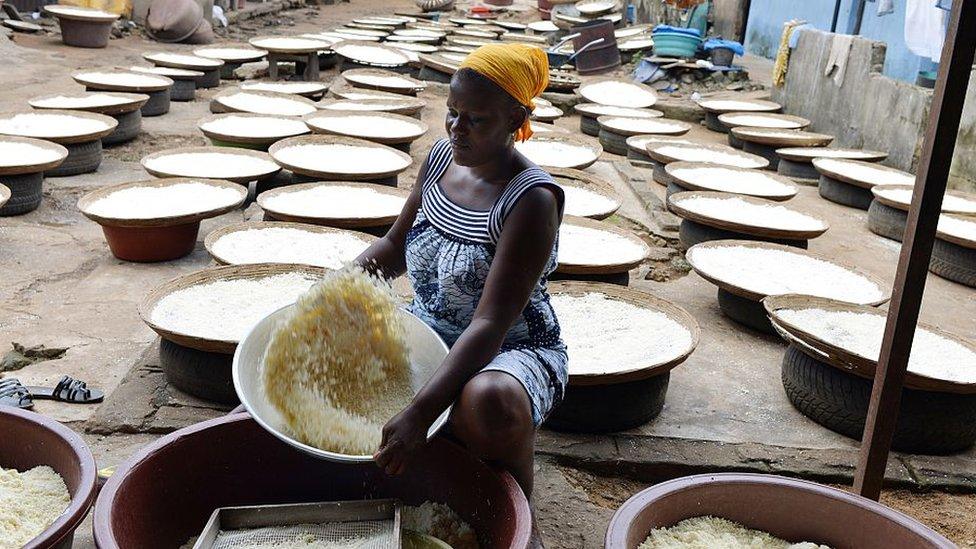
Some Ivorians eat attieke for breakfast, lunch and dinner
One of the main reasons the Ivorian government gave is that many people outside Ivory Coast - in Africa and even south-east Asia - claim to be making and selling attieke.
They use the Ivorian unique style name and brand to sell their product while "they are using only a part of the process", government spokesman Bruno Kone said.
The announcement follows a severe shortage of attieke in Ivory Coast's markets this year, leading President Alassane Ouattara to blame "cartels" and ask police to investigate and dismantle them.
Trade unions and consumer organisations applauded Mr Ouattara and his decision received unanimous support in a country often divided by politics and with raw memories of two decades of crisis and the 2010-2011 post-election war.
A sign that attieke is one of few things that still unites Ivory Coast's 20 million people from 62 ethnic backgrounds.

What difference will it make?
The Ivorian government is asking the African Regional Intellectual Property Organization to protect attieke.
But Aripo does not have a compliance policing unit so it is not clear how it would be enforced on the continent, let alone elsewhere.
Given that markets in Ivory Coast and elsewhere in West Africa are full of pirated music and DVDs, it is hard to see anyone going round to inspect bags of attieke and confiscate any that are not certified.
Read more: African food: The next gastronomic trend?
- Published14 December 2015
